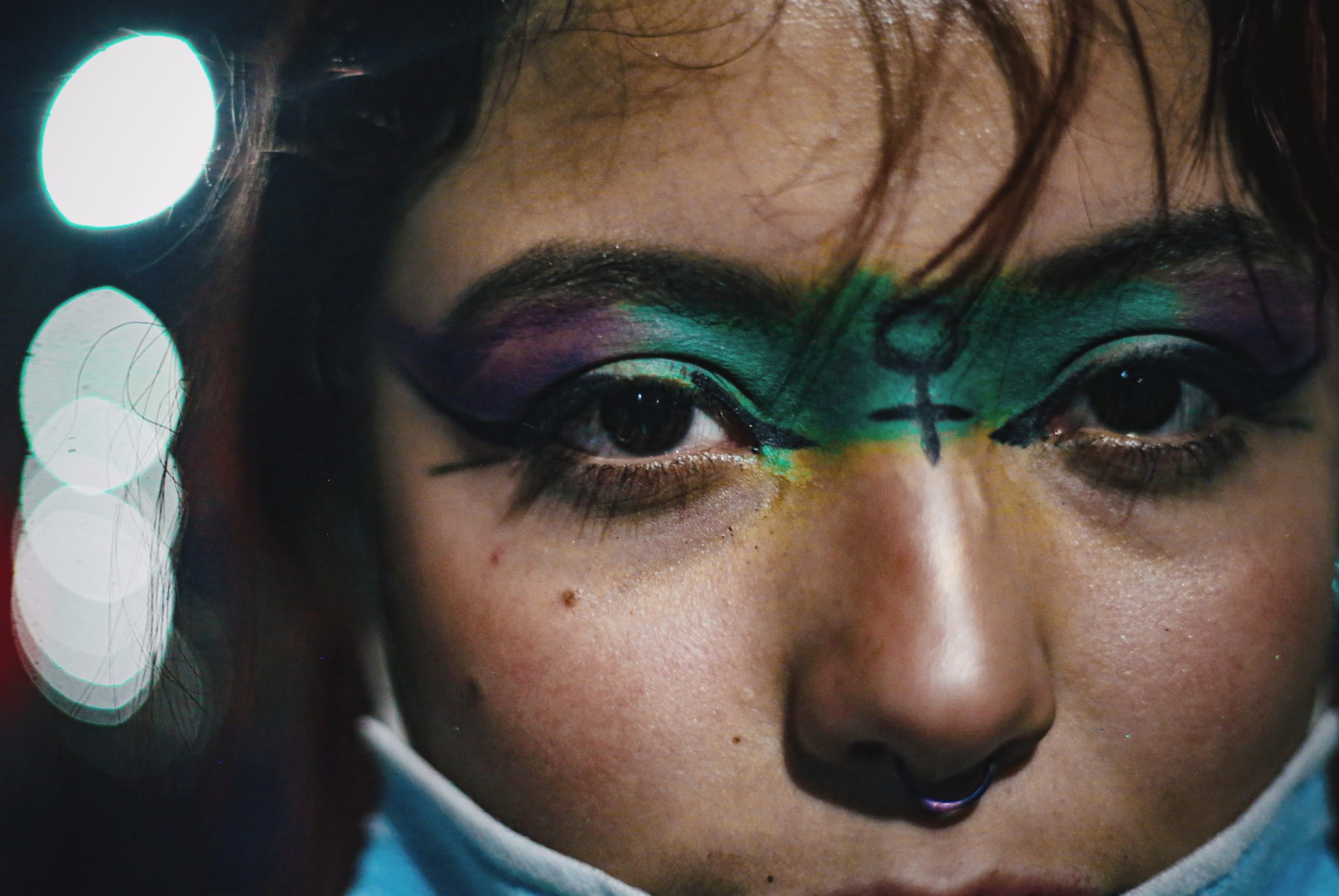

Photo by Daniela Díaz Rangel/Latino Rebels
BOGOTÁ, Colombia — According to data provided to Latino Rebels by the Colombian Ministry of Health, in the last 10 years over 40,000 Colombian girls have become mothers. Between 2005 and 2017, 502 minors were arrested for seeking terminations, three of them aged 11 and 12. More than 25 percent of those prosecuted for abortion are minors, most of whom live in poverty.
Colombia could become the first country in Latin America to remove the crime of abortion from its penal code, and the region’s fourth country in a year to liberalize abortion if the Constitutional Court rules favorably on a series of lawsuits. The move would be a major win for public health and the rights of women and girls, but the campaign faces opposition from conservative and religious groups.
Under article 122 of Colombia’s penal code, any woman who has an abortion can be sentenced to prison for 16 to 54 months. Since the 2006 Constitutional Court ruling C-355, the procedure is permitted in just three circumstances: fetal malformation, risk to the mother’s life, and sexual abuse.
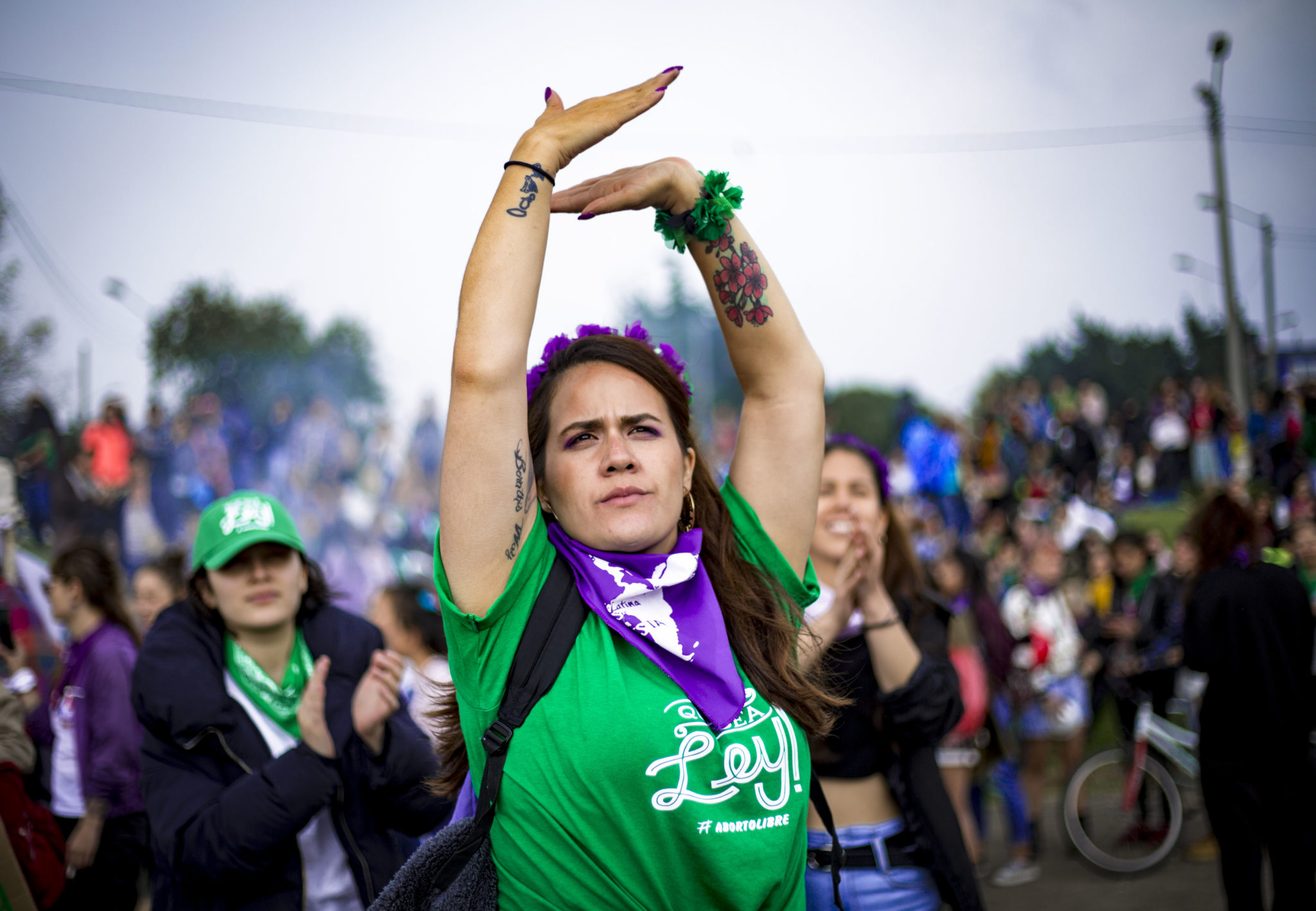

Photo by Daniela Díaz Rangel/Latino Rebels
Currently, the Constitutional Court is handling three cases: one presented by the Causa Justa movement, an alliance of more than 80 feminist and women’s organizations, and two other civil rights cases.
“Abortion is only regulated in the field of public health, … regulated as a health service to which all women and girls have rights,” says María Isabel Niño, a lawyer for Causa Justa. “In the face of that, the State has constitutional obligations to offer that service in timely, safe, and equal conditions.”
The lawsuits claim that Colombia’s prohibition on abortion violates the constitution and international law. They argue that the law as it stands violates the rights to health, freedom of conscience and a secular state, the rights of migrant women, and the right to abort even when the current law would allow it.
The court is expected to rule on all three cases by January. Initially, feminist movements in the country have focused on decriminalization. This means that if the court rules in their favor, abortion would no longer be a crime, but the current legal conditions would still apply for those wishing to seek legal terminations in the medical system.
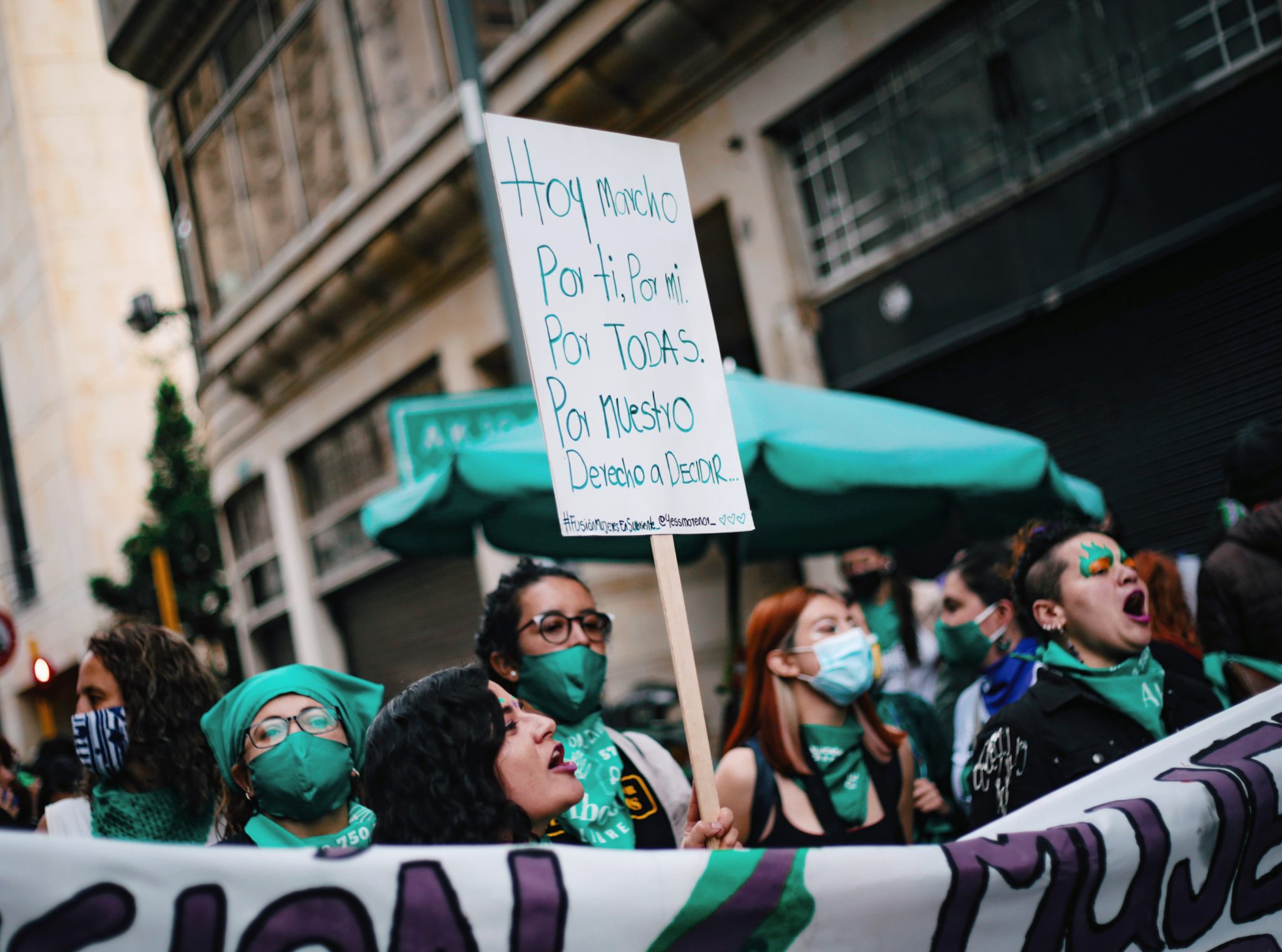

Photo by Daniela Díaz Rangel/Latino Rebels
According to Ministry of Health data, between 2019 and 2020, 9,020 births were registered to girls aged 10-14. Unsafe abortions kill around 70 women each year, but as the ministry admits, “Abortions that are ‘clandestine’ or outside the healthcare system are by their very nature not detected by the information systems of the Ministry of Health and Social Protection.”
Despite this, according to the report “The Criminalization of Abortion in Colombia” by social and human rights organizations, around 400 Colombian women are prosecuted for abortion each year, a figure which has risen substantially since 2006. Most are women in rural areas who are reported by their doctors.
Since December 2020, Argentina, Chile, and Mexico have legalized or decriminalized abortion, putting the debate in the spotlight. Regional advocates use the term “voluntary interruption of pregnancy” to combat the stigma associated with the procedure.
In Latin America, abortion is still illegal without exception in Honduras, Salvador, Nicaragua, the Dominican Republic, and Haiti. Only in Uruguay, Cuba, Guyana, Argentina, and now Chile, is abortion free and legal. In September, Mexico’s supreme court ruled that penalizing abortion was unconstitutional, a major step towards full decriminalization.
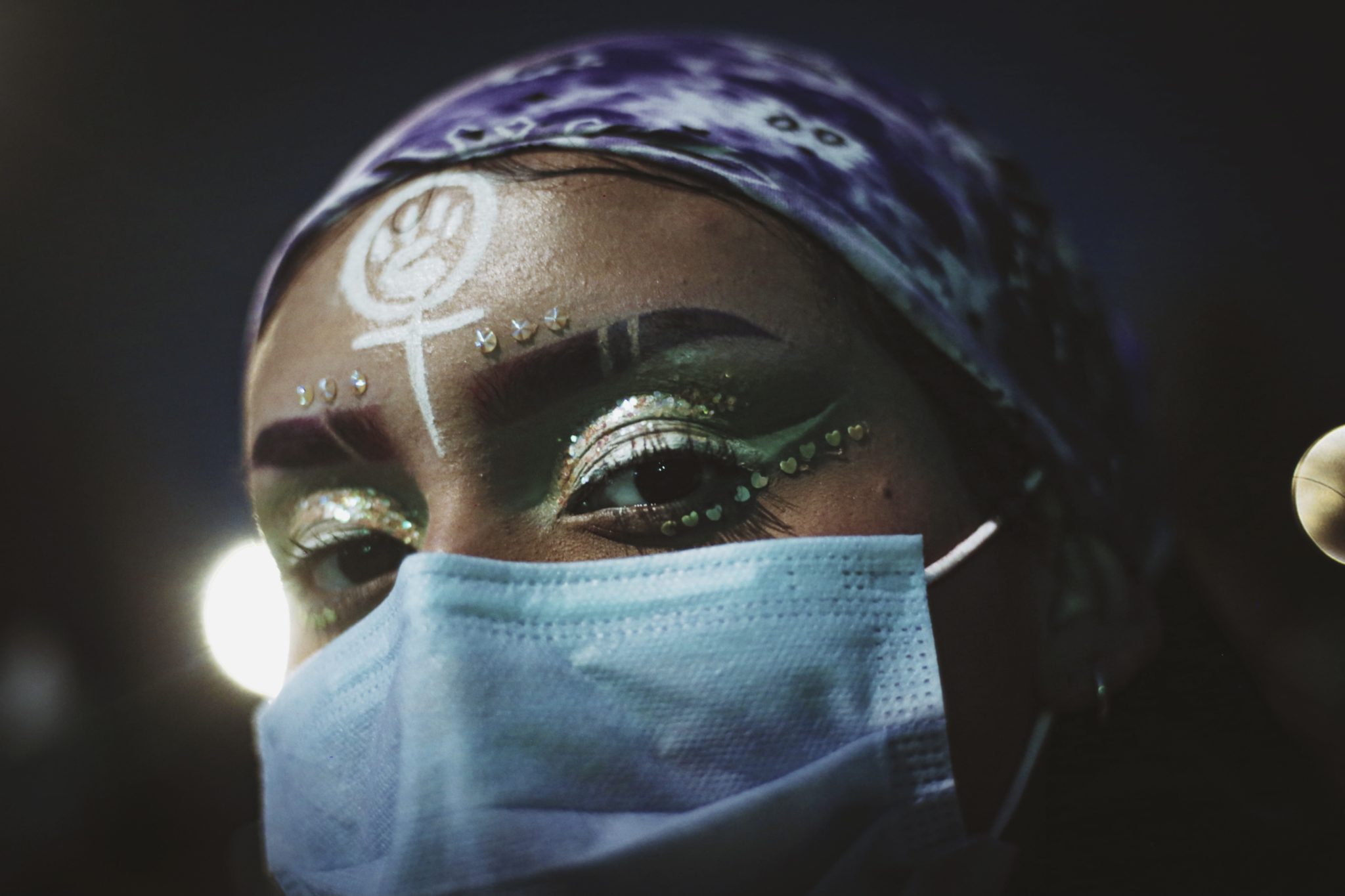

Photo by Daniela Díaz Rangel/Latino Rebels
In Colombia, public opinion on the legalization of abortion is divided, according to surveys. A majority prefers to keep the current law, favoring neither absolute restriction nor total decriminalization. President Iván Duque has voiced this opinion. “I defend life,” he said. “But I recognize the three conditions the court has said must be accepted for an abortion.”
Since legalizing abortion under the three conditions, the movement has gained new adherents in the country and the region, who are driving the demand for decriminalization.
Latino Rebels spoke to Catalina Martínez Coral, regional director for Latin America and the Caribbean at the Center for Reproductive Rights, a nonprofit that litigates human rights cases. She believes it’s a mistake to criminalize the voluntary interruption of pregnancy. “The crime of abortion continues to violate the fundamental rights of women. The fundamental rights of access to health, to be able to decide about their bodies, and to continue with their life plans, among others.”
The high court has up to three months to reach a decision, but according to Causa Justa lawyers, a decision is expected by mid-November. This is the closest the country has come to decriminalizing abortion, especially since both sides of the debate recognize that regional policy is moving towards decriminalization. But it will be the Constitutional Court that has the final word, a decision which may set a precedent in neighboring countries, as Martínez noted.
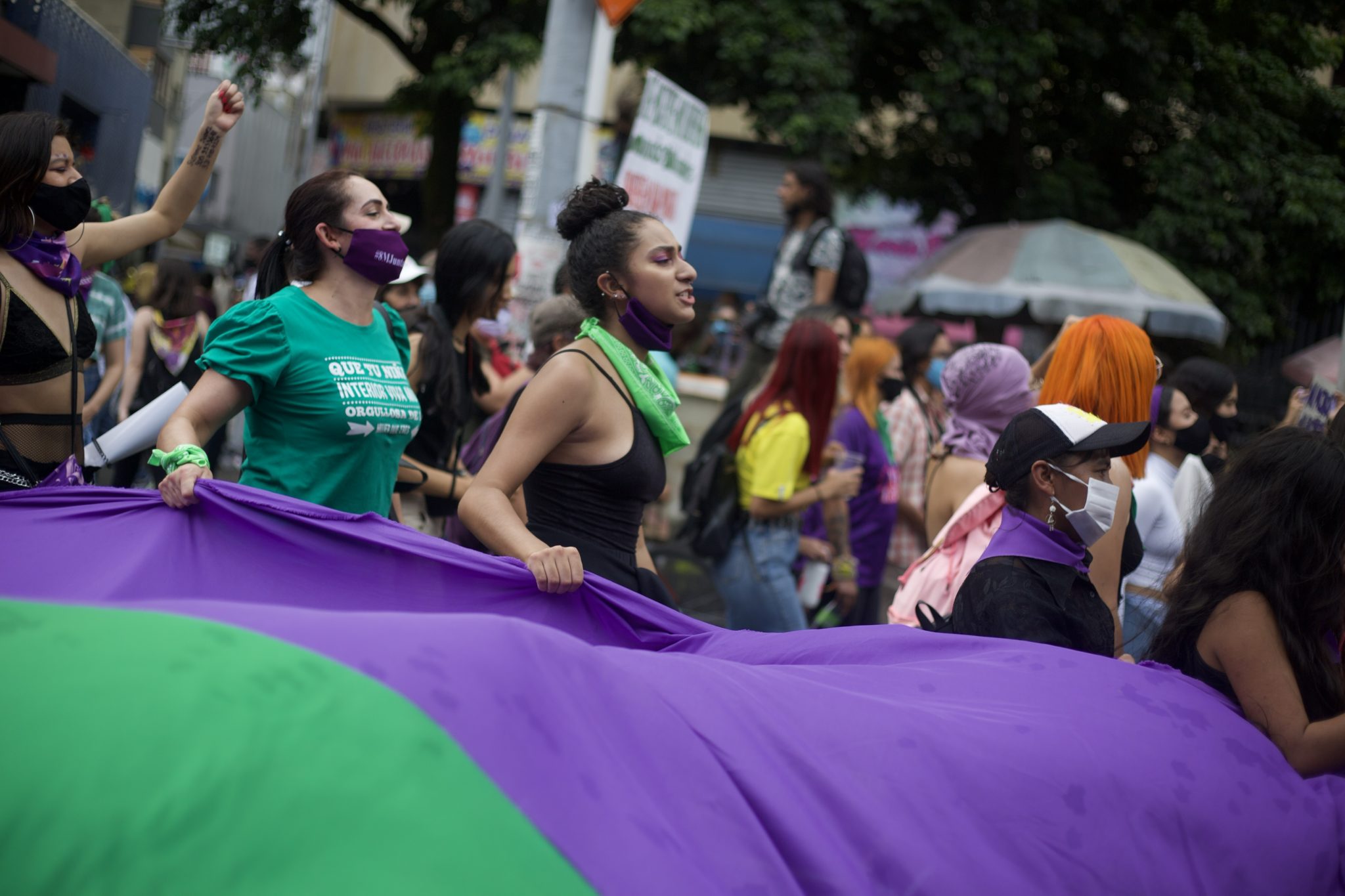

Photo by Daniela Díaz Rangel/Latino Rebels
“If we have a positive decision, that would be really important for the region,” she said. “It would be the first country to completely eliminate the crime of abortion from the penal code. That would mean rethinking the different scenarios in which we can access abortion. It would be a very important step to rethinking the struggle for abortion in Latin America and the Caribbean because what we want is the elimination of a crime that continues to generate stigma.”
She believes the context surrounding the demand is encouraging. “We are really optimistic. We hope to get a favorable decision that will allow us to keep advancing towards women’s rights in the country.”
Meanwhile, women in Colombia, one of the most unequal countries in the world, will continue aborting in secret, risking their lives and their health. Women’s movements continue to call for regional solidarity and are hopeful that the 502 underage girls currently facing prosecution for abortion will instead be allowed to grow up with the guarantees and opportunities that will empower them to decide when to become mothers.
***
Daniela Díaz Rangel is a photojournalist based in Colombia whose work focuses on focus on gender, peace, and social issues.


